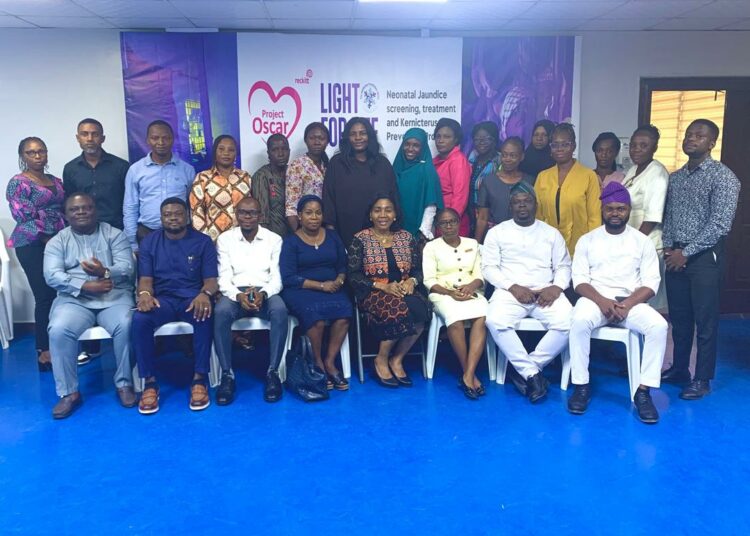A leading neonatologist from Lagos University Teaching Hospital (LUTH), Prof. Chinyere Ezeaka, has called for urgent action on neonatal jaundice, describing it as the most common neonatal emergency in Nigeria.
She stressed that without timely intervention, the condition can lead to lifelong disability or death.
Prof. Ezeaka made ths call during the quarterly review meeting of Project Oscar – Light for Life, a neonatal jaundice screening, treatment, and kernicterus prevention programme led by the Wellbeing Foundation Africa (WBFA) in partnership with Reckitt Nigeria.
The the quarterly meeting which was held at the Surgical Skills Centre, LUTH, Idi Araba, Lagos, brought together healthcare professionals, and programme partners, to assess progress, share insights, and reaffirm their commitment to addressing neonatal jaundice through coordinated, pragmatic and data-driven action.
While reflecting on the programme’s reach so far, the team revealed that as of May 2025, Project Oscar through the WBFA’s Mamacare360 Antenatal and Postnatal classes had successfully educated 2,930 mothers and caregivers on recognising early signs of neonatal jaundice.
In parallel, 161 healthcare workers had been trained in essential newborn care and clinical management of neonatal jaundice, strengthening the frontline capacity to respond quickly and effectively.
Meanwhile, a total of 2,135 babies had been screened during this period, with 239 of them identified as having elevated bilirubin levels. Of these, 214 were referred and are currently receiving appropriate treatment, proving the programme’s capacity to detect and respond to cases before complications arise.
“We see a lot of children who will not actualise their life potential because they’ve had severe jaundice,” said Prof. Ezeaka, stressing the importance of prevention and early intervention.
She also commended the integration of tools such as the BiliDx machine, which enables bilirubin levels to be checked at the point of care in under five minutes, an innovation she described as pivotal in reducing preventable neonatal deaths and improving long-term child outcomes.
Prof. Ezeaka, the clinical lead for the NEST360 programme, also called for a cultural shift in jaundice awareness, urging education not only for mothers but also grandmothers, fathers, and communities to ensure early detection during newborns’ critical first days.
WBFA Programme Director, Mr. Williams Awotunde, described the quarterly review as a moment to reflect not only on numbers but on the lives behind them. “Project Oscar reminds us that the smallest data points can hold the loudest stories that shape policy, shift mindsets, and save newborn lives,” he said.
Awotunde stressed the importance of grassroots voices in driving the initiative, noting that stories from mothers and caregivers power the project forward. Despite challenges, he expressed optimism about the future of neonatal care in Nigeria.
“Every review is a lens into our future. And with Project Oscar, that future looks more equitable, informed, and just,” he said.
Programme Manager for Project Oscar at the Solina Centre for International Development and Research (SCIDaR), Dr. Daniel Adeniyi, emphasised the need to train healthcare workers to detect jaundice early, start treatment promptly, and refer severe cases.
He asserted that SCIDaR has trained staff in 12 primary healthcare centres across three local government areas in Lagos State, aiming to reduce kernicterus, a preventable condition caused by untreated jaundice.











